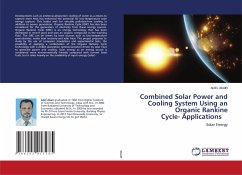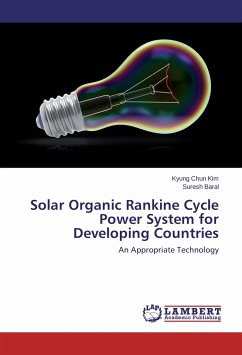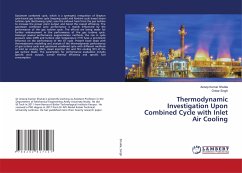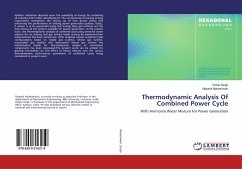Developments such as ammonia-absorption cooling of water as a means to capture more heat has enhanced the potential for low-temperature solar energy capture. This bodes well for virtually pollution-free cooling in addition to power generation. Organic Rankine Cycle (ORC) has also been considered for the generation of electricity from these energy sources. Organic Rankine Cycle (ORC) is an energy technology that has been developed in recent years and uses an organic compound as the working fluid. The ORC can be driven by heat sources such as low-temperature groundwater, waste heat recovery and solar heat. This project proposes to study by the use of computer simulations and experimental tests, the possibility of applying a combination of the Organic Rankine Cycle technology with a chilled absorption (ammonia/water) driven by solar heat to generate power and cooling. Solar energy as an energy source is considered more environmentally friendly compared with current fossil fuels, butit relies heavily on the availability of input energy (Solar)








